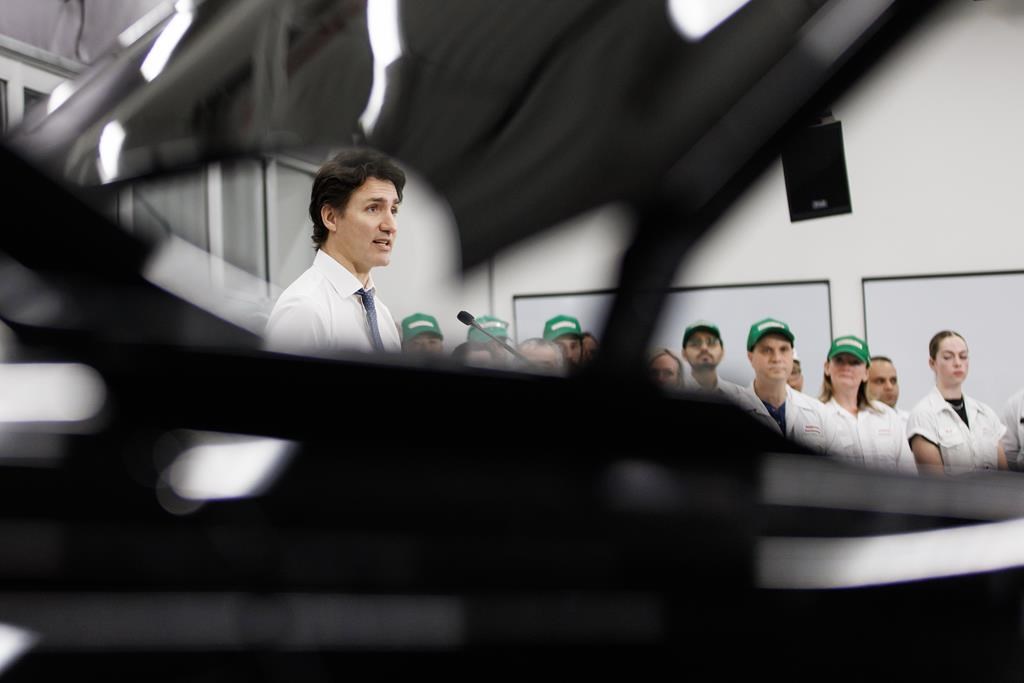Flaherty rejects new stimulus spending unless new recession occurs
Posted October 4, 2011 12:42 pm.
This article is more than 5 years old.
Finance Minister Jim Flaherty laid out what it would take him to introduce new stimulus to support the economy and jobs — a new recession.
But Flaherty said he’s “relatively confident” that will not happen.
The minister’s statements Tuesday came minutes before the Toronto Stock Exchange opened with another big selloff, the dollar tumbled below 95 cents US and more dark news out of Europe that Greece was edging closer to a debt default.
Taking a cue from European markets, the TSE index was down almost 300 points by mid-morning, after shedding 372 points Monday.
“If we had some sort of world recession, that would change the picture dramatically,” Flaherty said of the government’s approach.
“But I’m relatively confident that what we’re going to see in Canada is modest economic growth over the next little while. I’m comfortable … with that anticipation for the next little while.”
Flaherty said he was willing to throw overboard plans to balance the budget in four years if a slump hit Canada and more stimulus spending is needed.
He also said he believed the loonie’s plunge was a temporary phenomenon due to flight to the “perceived safe haven” of the U.S. dollar.
With the global economy slowing, demand is falling for Canadian oil, copper, grain, chemicals, wood and other resources that have underpinned the export sector for years.
That will likely lead to weaker job growth, making it more difficult for Canada’s 1.4 million unemployed to get jobs and pushing up the 7.3 per cent unemployment rate.
The federal government is coming under daily pressure from opposition parties, particularly the NDP, to abandon the budget scenario it put in place in March when the economy appeared set for a full recovery.
NDP finance critic Peggy Nash has been holding almost daily news conferences arguing that the situation has dramatically changed for the worst since March, and a new approach is needed. Liberal leader Bob Rae said last week he believes the Canada may be headed to a recession.
Both critics say the Harper Conservatives are running the risk of being caught unprepared as they were in late 2008 when they refused to acknowledge that a recession had begun until all three opposition parties threatened to topple the then minority government. They said precious time was wasted when the prime minister prorogued Parliament for almost two months to avoid defeat.
Flaherty said at a news conference to tout a previously announced program to encourage small business hiring that he is sticking to his guns on his plans to eliminate the deficit in four years unless something major happens.
Economists so far have mostly sided with Flaherty’s approach, saying Ottawa should hold back on new stimulus until the downturn is confirmed. But they also say the likelihood of additional stimulus being needed has risen.
“In the absence of an external shock to the Canadian economy, we’re on the right track, we’ll stay on track,” Flaherty said. “The lesson of Greece and some other countries in Europe is that accumulating deficits and creating a large public debt over time is the worst thing you can to an economy and to the people of a country and we have no intention in going that direction.”
Fiscal rectitude is also a key reason he said he chose to publicly endorse the Conservatives in the upcoming Ontario election, suggesting that the Liberal government of Dalton McGuinty is too lax with the province’s finances.
Flaherty also said there are no “emergency” plans among the G20 group of nations to deal with the situation, saying the power and decision to calm markets rest with European leaders.
Global policy-makers have been meeting regularly on the European debt issue, but have failed to produce the kind of consensus on action to satisfy markets fearful that Greece and other debt-burdened European nations will trigger a financial crisis and a second global slump.
Flaherty, who is meeting his counterparts again in France late next week, acknowledged that there have been plenty of meetings but too little progress..
“We have advocated for flexibility with respect to the size of facility [emergency fund] that the eurozone has agreed to create, and we think that’s important … [to] overwhelm the situation,” he said.
“It is time for the eurozone countries to deal with that situation,” he added.










